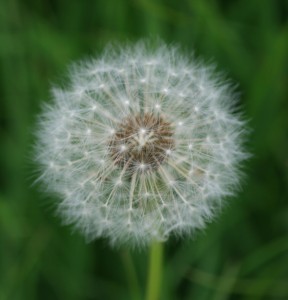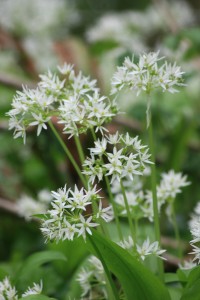‘In times of pain, when the future is too terrifying to contemplate and the past is too painful to remember, I have learned to pay attention to right now. The precise moment I was in was always the only safe place for me. Each moment, taken alone, was always bearable. In the exact now, we are all, always, all right’. Julia Cameron – The Artist’s Way
Since 2000 the Mental Health Foundation has run an annual Mental Health Awareness Week to try and raise the profile of Mental Health and Illness and remove some of the stigma surrounding them. This year’s focus was Mindfulness – a technique or way of being that can be taught and has been proven to have a positive effect on mental health[1]. Recent research indicates that it can be as good as anti-depressants for depression and, as it is a technique rather than a treatment, it can be used for a lifetime.
What is mindfulness?
Mindfulness is not a new practice; in fact, it is the oldest form of ‘therapy’ available, coming originally from Buddhism and Buddhist Psychology. It is a way of living in the moment, paying attention only to what is right now. The past has gone and the future has not yet arrived so the only ‘reality’ is where we are at this moment.

At this moment, I am sitting at my keyboard typing this article. I am aware that I have a list of things that I need to do before tomorrow and every few minutes, one of those things drifts into my mind. There is one thing I am slightly anxious about and that thing appears in my thoughts over and over again. Each time this happens, I am taken away from writing this article, I lose my thread of thought and I am no longer in the moment. I am, in fact, thinking about something that has not yet happened and may never happen. I am not present with myself and my work. I am not being mindful.
When we live like this all the time, never really focussing on what we are doing right now because our minds are elsewhere, we are, in a sense, not really living. We aren’t ‘here’ because our thoughts are elsewhere and we aren’t ‘there’ because ‘there’ has either happened already or may happen in the future (or not)!
When I am mindful, I am focussed only on what I am doing. I am aware of the sound of the keys clicking as I type, I notice how the words appear on the screen and how I feel a certain pleasure to see them appear so neatly. I decide what I want to say next, and I stop typing to find the best words to make my point. I am absorbed in my task, I am mindful. This means that I am really doing my work in the best way that I can.
I cannot stop thoughts from intruding into my mind but each time they do, I acknowledge that they are there, and then I return to my writing. My anxious feeling returns but I notice it, acknowledge that it is there and turn back to my work without judgement of myself. I can also acknowledge at this point that being mindful all the time is not easy!

Why does mindfulness help?
When someone is suffering from depression or anxiety, not being present can be an almost permanent state of mind. The thoughts of such a person can be always internal, focussed on how bad they feel, how worrying a potential situation is, how wrong their life has gone, or a range of other distressing thoughts. Often, what starts out as a relatively minor side thought can spiral downwards rapidly – it can be a very frightening place to be. A mindfulness based approach to working with these types of problems encourages the person to fully concentrate on each thing that they are doing, even if it is just making a cup of tea. You might focus on the feel of the cup, the sound of the kettle boiling, the way in which the water spirals as it is poured into the cup and then, of course, the taste of the tea and how it feels to drink.
In another sense if we pay attention to what is happening for us, good or bad, we can learn to spot the kinds of automatic thoughts and patterns that we might have. Even if we are in a bad place, by being mindful about what we are doing, accepting where we are rather than thinking that we ‘should’ be somewhere else, we can cultivate a resilience to the bad times by living moment to moment and fully experiencing it rather than constantly wishing we were somewhere else.
Mindfulness helps because it allows us to notice what is happening with our thoughts and emotions and teaches us how to stop them spiralling to a point where they overwhelm us. As we work to be more mindful we become really aware of what is happening inside and outside of us. We can then create a space where we can choose how to react, rather than reacting automatically. Ultimately, we can learn that our thoughts are not necessarily a true reflection of reality – they are simply a ‘mental event’. Just because we think something, that does not make it true.
Additionally, taking time to really notice the things around us using all of our senses brings us back into a reality that is about the moment we are in rather than a moment that has already passed or may be yet to happen. If we do something that we enjoy, doing it mindfully can help us get the most out of the experience, making sure we are really enjoying it rather than spending the time thinking about something else – and missing out on our happy time!
Mindfulness is not the answer to every mental health problem as one might be led to imagine by some of the recent press the subject has received but it is a way of being that can really help change the way a person thinks about themselves and the world and can stop the negative cycles that seem to pursue those with depression and anxiety. What’s more, it’s a drug-free, lifelong skill that can be learnt and practiced really easily. There is nothing to lose by trying it!
[1] Boseley, S. (2015) Mindfulness as effective as pills for treating recurrent depression – Study. Guardian online [online] 21 April. Available at: <http://www.theguardian.com/society/2015/apr/21/mindfulness-based-cognitive-therapy-treatment-chronic-depression-antidepressants> [Accessed 12 May 2015]




Nerissa,
It feels like you have described my life and my thoughts.
I am going to work on mindfulness.
Thank you.
Nats.
I am so glad that you have found something useful in this.
Thanks for reading
Nerissa